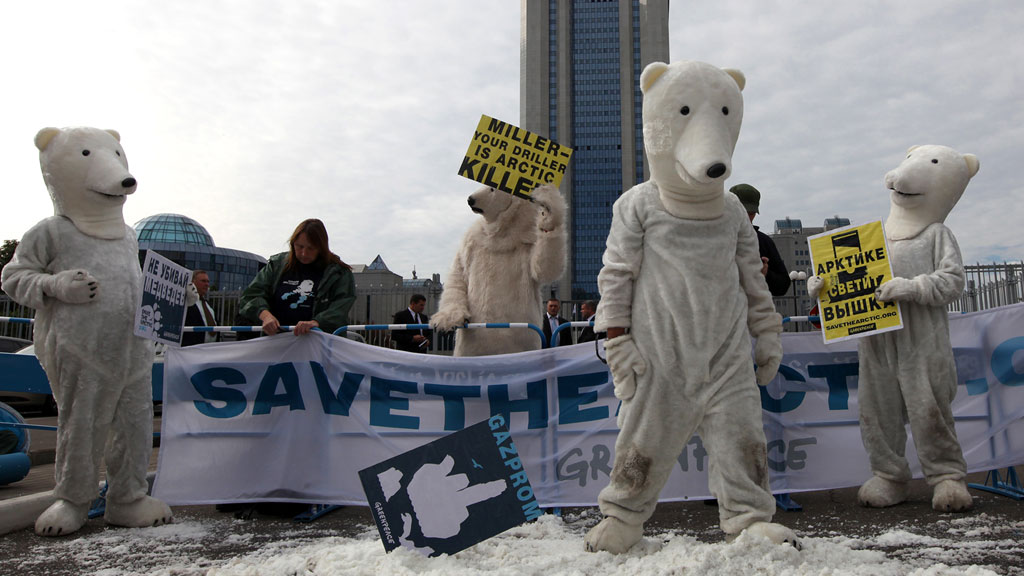Stop drilling in the Arctic – MPs
An influential committee of MPs calls for a moratorium on drilling for oil and gas in the Arctic until companies can operate there without harming the fragile polar environment.

“The oil companies should come clean and admit that dealing with an oil spill in the icy extremes of the Arctic would be exceptionally difficult,” said Joan Walley MP, chair of the Commons environmental audit committee.
The committee took evidence from representatives of the oil and gas industry, governments of Arctic territories, scientists and environmental groups. They identified fundamental weaknesses surrounding plans for safe oil and gas extraction in a harsh, poorly understood environment.
The committee concluded a moratorium should be imposed until an Arctic-wide standard for responding to an oil spill is in place. It also called for a financial liability scheme to be set up to meet the costs of a clean-up if a company ran out of money.
‘Impossible to tackle’
Marine experts warn a spill on or under Arctic ice could be nealy impossible to tackle. The cold temperatures of the Arctic would also mean oil could persist for far longer than after a warm-water spill.
The committee also called for more research and testing of oil spill response techniques before they are deployed to Arctic drilling programmes.
“We heard compelling evidence that if a blow-out occurred just before the dark Arctic winter returned it may not be possible to cap it until the following summer – potentially leaving oil spewing out under the ice for six months or more with devastating consequences for wildlife,” said Ms Walley.
Cairn Energy, a British company with licences to prospect for oil and gas in Baffin Bay to the west of Greenland, told the committee that hydrocarbon fuels would continue to be a major part of the world’s energy mix and the Arctic would become a new frontier for exploration.
“The imperative to find new sources of oil and gas remains urgent,” sad Richard Heaton, head of exploration at Cairn.
The company admitted that clean-up of a spill on or under ice was complex, but that its oil-spill response plans were designed to cope with the challenges.
“We have to have a whole array of methods at our disposal,” said Mr Heaton.
Campaign groups have strongly criticised companies’ oil spill response plans as being woefully inadequate for dealing with the unknown eventualities of a spill – especially if it occurred during the Arctic winter. Due to almost total sea ice cover and poor weather conditions it is unlikely that vessels could reach a leaking well to deal with a spill.
Dash for oil and gas
It is not yet clear whether the dash for oil and gas in the Arctic will happen as fast as some campaigners fear. Mindful of a repeat of its Macondo well disaster in the Gulf of Mexico, oil gian BP suspended oil exploration plans in Greenland in 2010 – though the company is still eyeing opportunities in the Canadian and Russian Arctic.
Oil major Shell recently suspended drilling an exploratory well in Alaska’s Chukci Sea because a dome designed to contain a sub-sea spill failed key safety tests. After spending the summer of 2011 drilling off the coast of Greenland, Cairn Energy was unsuccessful in finding significant deposits of oil and gas.
Peter Velez, Shell’s Arctic emergency response chief, told the committee that Shell did not estimate the financial cost to the company of a “worst case” oil spill in the Arctic. If it did happen, he said, “we are going to do whatever it takes to clean it up”.